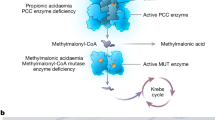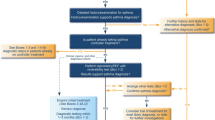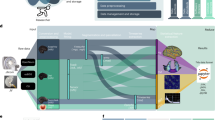Abstract
Researchers, clinicians, policymakers and patients are increasingly interested in questions about therapeutic interventions that are difficult or costly to answer with traditional, free-standing, parallel-group randomized controlled trials (RCTs). Examples include scenarios in which there is a desire to compare multiple interventions, to generate separate effect estimates across subgroups of patients with distinct but related conditions or clinical features, or to minimize downtime between trials. In response, researchers have proposed new RCT designs such as adaptive platform trials (APTs), which are able to study multiple interventions in a disease or condition in a perpetual manner, with interventions entering and leaving the platform on the basis of a predefined decision algorithm. APTs offer innovations that could reshape clinical trials, and several APTs are now funded in various disease areas. With the aim of facilitating the use of APTs, here we review common features and issues that arise with such trials, and offer recommendations to promote best practices in their design, conduct, oversight and reporting.
This is a preview of subscription content, access via your institution
Access options
Access Nature and 54 other Nature Portfolio journals
Get Nature+, our best-value online-access subscription
$29.99 / 30 days
cancel any time
Subscribe to this journal
Receive 12 print issues and online access
$209.00 per year
only $17.42 per issue
Buy this article
- Purchase on Springer Link
- Instant access to full article PDF
Prices may be subject to local taxes which are calculated during checkout

Similar content being viewed by others
Change history
10 September 2019
An amendment to this paper has been published and can be accessed via a link at the top of the paper.
References
Bothwell, L. E., Greene, J. A., Podolsky, S. H. & Jones, D. S. Assessing the gold standard — lessons from the history of RCTs. N. Engl. J. Med. 374, 2175–2181 (2016).
Woodcock, J. & LaVange, L. M. Master protocols to study multiple therapies, multiple diseases, or both. N. Engl. J. Med. 377, 62–70 (2017).
Berry, S. M., Connor, J. T. & Lewis, R. J. The platform trial: an efficient strategy for evaluating multiple treatments. JAMA. 313, 1619–1620 (2015).
Morris, Z. S., Wooding, S. & Grant, J. The answer is 17 years, what is the question: understanding time lags in translational research. J. R. Soc. Med. 104, 510–520 (2011).
Institute of Medicine (US) Committee on Quality of Health Care in America. Crossing the Quality Chasm: A New Health System for the 21st Century. (National Academies Press, 2001).
Lai, T. L., Lavori, P. W. & Tsang, K. W. Adaptive design of confirmatory trials: advances and challenges. Contemp. Clin. Trials 45, 93–102 (2015).
Berry, D. A. Bayesian clinical trials. Nat. Rev. Drug Discov. 5, 27–36 (2006).
Antoniou, M., Jorgensen, A. L. & Kolamunnage-Dona, R. Biomarker-guided adaptive trial designs in phase II and phase III: a methodological review. PLOS ONE 11, e0149803 (2016).
Alexander, B. M. et al. Biomarker-based adaptive trials for patients with glioblastoma—lessons from I-SPY 2. Neuro-oncology 15, 972–978 (2013).
Trippa, L. & Alexander, B. M. Bayesian baskets: a novel design for biomarker-based clinical trials. J. Clin. Oncol. 35, 681–687 (2017).
Berry, S. M., Reese, C. S. & Larkey, P. D. Bridging different eras in sports. J. Am. Stat. Associ. 94, 16 (1999).
Saville, B. R., Connor, J. T., Ayers, G. D. & Alvarez, J. The utility of Bayesian predictive probabilities for interim monitoring of clinical trials. Clin. Trials 11, 485–493 (2014).
Alexander, B. M. et al. Individualized Screening Trial of Innovative Glioblastoma Therapy (INSIGhT): a Bayesian adaptive platform trial to develop precision medicines for patients with glioblastoma. JCO Precis. Oncol. https://doi.org/10.1200/PO.18.00071 (2019).
Trippa, L. et al. Bayesian adaptive randomized trial design for patients with recurrent glioblastoma. J. Clin. Oncol. 30, 3258–3263 (2012).
Hummel, J., Wang, S. & Kirkpatrick, J. Using simulation to optimize adaptive trial designs: applications in learning and confirmatory phase trials. Clin. Invest. 5, 401–413 (2015).
LaVange, L. M. & Sridhara, R. Innovations in breast cancer drug development—next generation oncology trials: statistical considerations in designing master protocols. FDA http://wayback.archive-it.org/7993/20161023010547/http://www.fda.gov/downloads/Drugs/NewsEvents/UCM423368.pdf (2014).
US Food and Drug Administration. Adaptive designs for medical device clinical studies. FDA https://www.fda.gov/ucm/groups/fdagov-public/@fdagov-meddev-gen/documents/document/ucm446729.pdf (2016).
London, A. J. Learning health systems, clinical equipoise and the ethics of response adaptive randomisation. J. Med. Ethics 44, 409–415 (2018).
Dixon, J. R. Jr. The International Conference on Harmonization Good Clinical Practice guideline. Qual. Assur. 6, 65–74 (1998).
International Committee of Medical Journal Editors. Recommendations for the conduct, reporting, editing, and publication of scholarly work in medical journals. ICMJE http://www.icmje.org/icmje-recommendations.pdf (2018).
CONSORT. CONSORT 2010. CONSORT http://www.consort-statement.org/consort-2010 (2010).
Rugo, H. S. et al. Adaptive randomization of veliparib–carboplatin treatment in breast cancer. N. Engl. J. Med. 375, 23–34 (2016).
Park, J. W. et al. Adaptive randomization of neratinib in early breast cancer. N. Engl. J. Med. 375, 11–22 (2016).
Angus, D. C. Fusing randomized trials with big data: the key to self-learning health care systems? JAMA. 314, 767–768 (2015).
Fiore, L. D. & Lavori, P. W. Integrating randomized comparative effectiveness research with patient care. N. Engl. J. Med. 374, 2152–2158 (2016).
Alexander, B. M. & Cloughesy, T. F. Platform trials arrive on time for glioblastoma. Neuro-oncology 20, 723–725 (2018).
Stern, A. D. & Mehta, S. Adaptive platform trials: the clinical trial of the future? Harvard Business School https://www.hbs.edu/faculty/Pages/item.aspx?num=53315 (2018).
Alexander, B. M. et al. Brain Malignancy Steering Committee clinical trials planning workshop: report from the Targeted Therapies Working Group. Neuro-oncology 17, 180–188 (2015).
Das, S. & Lo, A. W. Re-inventing drug development: a case study of the I-SPY 2 breast cancer clinical trials program. Contemp. Clin. Trials 62, 168–174 (2017).
Fernandez, J. M., Stein, R. M. & Lo, A. W. Commercializing biomedical research through securitization techniques. Nat. Biotechnol. 30, 964–975 (2012).
Stern, A. D., Alexander, B. M. & Chandra, A. Innovation incentives and biomarkers. Clin. Pharmacol. Ther. 103, 34–36 (2018).
Korn, E. L. & Freidlin, B. Outcome—adaptive randomization: is it useful? J. Clin. Oncol. 29, 771–776 (2011).
Trusheim, M. R. et al. PIPELINEs: creating comparable clinical knowledge efficiently by linking trial platforms. Clin. Pharmacol. Ther. 100, 713–729 (2016).
Saville, B. R. & Berry, S. M. Efficiencies of platform clinical trials: a vision of the future. Clin. Trials 13, 358–366 (2016).
Steuer, C. E. et al. Innovative clinical trials: the LUNG-MAP study. Clin. Pharmacol. Ther. 97, 488–491 (2015).
National Cancer Institute Cancer Therapy Evaluation Program. NCI-MATCH Trial (Molecular Analysis for Therapy Choice). NIH http://www.cancer.gov/about-cancer/treatment/clinical-trials/nci-supported/nci-match (updated 9 Apr 2019).
Lewis, R. J. et al. Rationale and design of an adaptive phase 2b/3 clinical trial of selepressin for adults in septic shock. Selepressin Evaluation Programme for sepsis-induced shock-adaptive clinical trial. Ann. Am. Thorac Soc. 15, 250–257 (2018).
Barker, A. D. et al. I-SPY 2: an adaptive breast cancer trial design in the setting of neoadjuvant chemotherapy. Clin. Pharmacol. Ther. 86, 97–100 (2009).
Cortazar, P. et al. Pathological complete response and long-term clinical benefit in breast cancer: the CTNeoBC pooled analysis. Lancet 384, 164–172 (2014).
The I-SPY Trials. T-DM1 (Kadcyla) and pertuzumab (Perjeta) show promise for women with HER2-positive breast cancer. The I-SPY Trials https://www.ispytrials.org/newsitems/2016-tdm1-pertuzumab-graduation-press-release (2016).
The I-SPY Trials. Merck & Co. MK-2206 ‘graduates’ from I-SPY2. The I-SPY Trials https://www.ispytrials.org/newsitems/2015-mk2206-graduation-press-release (2015).
Alexander, B. M. et al. Adaptive global innovative learning environment for glioblastoma: GBM AGILE. Clin. Cancer Res. 24, 737–743 (2018).
Berry, S. M., Carlin, B. P., Lee, J. J. & Mueller, P. Bayesian Adaptive Methods for Clinical Trials 1st edn (CRC Press, 2010).
Thorlund, K., Haggstrom, J., Park, J. J. & Mills, E. J. Key design considerations for adaptive clinical trials: a primer for clinicians. BMJ 360, k698 (2018).
Ritchie, C. W. et al. Development of interventions for the secondary prevention of Alzheimer’s dementia: The European Prevention of Alzheimer’s Dementia (EPAD) project. Lancet Psychiatry 3, 179–186 (2016).
Acknowledgements
The authors are grateful to the Harvard/Massachusetts Institute of Technology (MIT) Center for Regulatory Science for hosting the meeting, and to the Harvard/MIT Center for Regulatory Science, the University of Pittsburgh, the PREPARE consortium, REMAP-CAP and Berry Consultants for financial support towards travel, lodging and expenses. They thank C. D’Avanzo, L. Dilworth, L. Maliszewski (Harvard University), R. Rice (University of Pittsburgh) and J. Clenell (Berry Consultants) for organizational and administrative support and J. Vates (University of Pittsburgh) for detailed review and editing.
Author information
Authors and Affiliations
Consortia
Corresponding authors
Ethics declarations
Competing interests
B.M.A. reports employment at Foundation Medicine, Inc.; personal fees from Bristol-Myers Squibb, Schlesinger Associates and Precision Health Economics; and unpaid leadership as president and CEO of the Global Coalition for Adaptive Research, a non-profit research organization. S. Berry reports being a part owner of Berry Consultants, LLC (a company that designs and implements platform and adaptive clinical trials for pharmaceutical companies, medical device companies, National Institutes of Health cooperative groups, international consortia and non-profit organizations) and providing consulting for platform trials. M. Buxton, M. Paoloni and K. Viele are currently employees of Berry Consultants, LLC. R. Lewis is a senior medical scientist at Berry Consultants, LLC. D. A. Berry is a co-owner of Berry Consultants, LLC. B. Hyman has current research support from AbbVie, Amgen, Denali, Fidelity Biosciences, Eli Lilly, Merck and co. and Arvinas; serves as a consultant for Biogen, Ceregeen, Genentech, Roche, Eli Lilly, Neurophage, Novartis, Takeda and Sunovian; and owns stock in, as well as having a family member who works for, Novartis. M. Krams is an employee of Johnson & Johnson. A.W. Lo has personal investments in biotechnology companies, biotech venture capital funds and mutual funds; serves as an adviser to BridgeBio Capital; is director of Roivant Sciences Ltd. and chairman emeritus and senior adviser to AlphaSimplex Group; has during the past 6 years received speaking/consulting fees or honoraria from AIG, AlphaSimplex Group, BIS, BridgeBio Capital, Citigroup, Chicago Mercantile Exchange, Financial Times, Harvard University, IMF, National Bank of Belgium, Q Group, Roivant Sciences, Scotia Bank, State Street Bank, University of Chicago and Yale University; and is a director of the Massachusetts Institute of Technology Whitehead Institute for Biomedical Research and a member of the Board of Overseers of Beth Israel Deaconess Medical Center. C. Ritchie provides consultancy and/or receives grant funding from Actinogen, Allergan, Biogen, Eisai, Alector, Janssen, MSD, Lundbeck, Prana Biotechnology, AbbVie, Roche, Eli Lilly and Pfizer. B. Spellberg in the last 12 months consulted for Bayer, Forge, Shionogi, Alexion, Synthetic Biologics, Paratek, TheoremDx, Bioversys and Acurx; and owns equity in Motif, BioAIM, Synthetic Biologics, Mycomed and ExBaq. M. Trusheim is owner of Co-Bio Consulting LLC, which provides services to biomedical companies, and has received speaking fees over the past 6 years from Cowen Group, Merck & Co. and Shire. P. Y. Wen reports receiving research support from Eli Lilly, Puma and Celgene and serving on advisory boards for Eli Lilly and Puma. The remaining authors declare no competing interests.
Additional information
Disclaimer
Views expressed here are the authors’ and do not necessarily reflect the position of the US Food and Drug Administration.
Publisher’s note
Springer Nature remains neutral with regard to jurisdictional claims in published maps and institutional affiliations.
Related links
ClinicalTrials.gov: www.clinicaltrials.gov
Supplementary information
Rights and permissions
About this article
Cite this article
The Adaptive Platform Trials Coalition. Adaptive platform trials: definition, design, conduct and reporting considerations. Nat Rev Drug Discov 18, 797–807 (2019). https://doi.org/10.1038/s41573-019-0034-3
Accepted:
Published:
Issue Date:
DOI: https://doi.org/10.1038/s41573-019-0034-3
This article is cited by
-
Revving up possibilities: can psychostimulants enhance physical function in children with cerebral palsy?
Pediatric Research (2024)
-
Using the ‘Leapfrog’ Design as a Simple Form of Adaptive Platform Trial to Develop, Test, and Implement Treatment Personalization Methods in Routine Practice
Administration and Policy in Mental Health and Mental Health Services Research (2024)
-
Looking ahead in early-phase trial design to improve the drug development process: examples in oncology
BMC Medical Research Methodology (2023)
-
BEAT CF pulmonary exacerbations core protocol for evaluating the management of pulmonary exacerbations in people with cystic fibrosis
Trials (2023)
-
Innovations to improve the efficiency of phase II IBD clinical trials
Nature Reviews Gastroenterology & Hepatology (2023)



